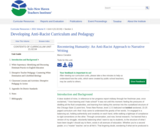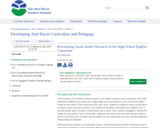I decided to take this seminar because in my career as a literature teacher, neither myself, nor my students, have ever felt collective joy engaging with narrative writing. My students have experienced an entire spectrum of emotion engaging with family, school, work, and all other institutions of society, yet when it comes down to choosing what to write, and actually writing, there comes an immense emotional and cognitive struggle in both brainstorming and production. I have students who participate in youth groups, volunteer work, are life-long athletes, commute to school every day at 5 am, yet choose to write about the stress and eventual success of math class. I have students who have participated in organized protests, work near full time jobs, and experience moments of existential and cultural realizations simply by engaging in conversation at dinner, yet choose to write about overcoming procrastination. I’ve sought out and attended professional development, asked advice not only locally, but all over the country, and have done extensive research in finding a solution to no avail. The vast majority of training, practices and advice I found approaches narrative writing as stagnant, and therefore, were ultimately just different approaches leading to the replicated result of forced-structured, inauthentic writing, that sounds like an individual different from my students.
What I haven’t done, despite it being so clear, and what I’m sure I’ve unconsciously avoided, is approach revising my practice while analyzing through a lens of race, power and identity. Teaching students writing techniques and how to use them correctly has never been a struggle. The struggle is widespread silence, and exclamations of “I don’t know what to write” and “I have nothing interesting to write about.” The struggle is grading and providing feedback to stories involving death, trauma, and raw human emotion, in no commas, periods, or sentences. I am not only looking to make small adjustments for temporary moments of success, I am seeking sustainable transformation--and my experience learning this seminar is a start. In my research, I have learned history, language, and patterns that speak to the tension I am describing in not only narrative writing, but education at large. Through an exploration of anti-racist theory, I have learned new ways to think, frame and ultimately approach teaching the personal narrative. Through researching the work of experienced, and critically conscious educators, I have found many resources, and also, outlined an approach I have never attempted. Moving forward, I will curate big-picture factors and history leading to the dominant practices in my classroom, and also, give perspective on the fallacy of these practices. I will then curate the teaching methods to counter the dominant approaches aiming for a more unifying, reflective, rich, complex and anti-racist- approach in preparing for and teaching students to write a personal narrative.
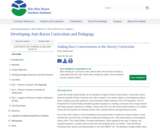
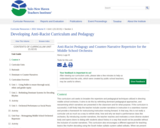


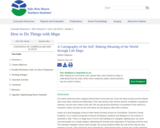


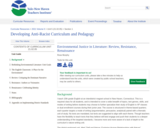
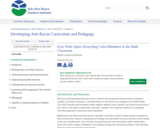
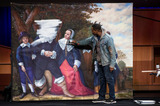
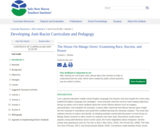
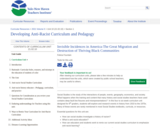
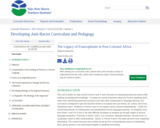
![Open For Antiracism (OFAR) [Connor's Test]](https://img.oercommons.org/160x134/oercommons/media/courseware/lesson/image/OFAR_zEOlKZo.png)
